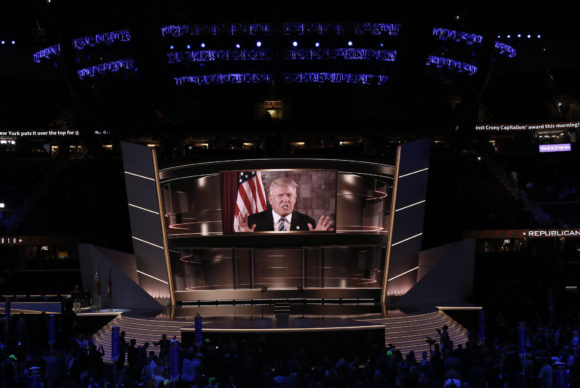Donald Trump is pulling out the stops to stall a fraud trial over his defunct real estate “university” until he’s president.
Having earlier persuaded a federal judge to delay the trial until after last week’s election, the president-elect now says he has too many responsibilities as he prepares for his inauguration to be diverted. And if that doesn’t work, he may challenge how the jury pool was selected.
Trump’s lawyers head to court Friday to convince the judge in San Diego to put the case on hold until next year. That’s the same Indiana-born judge who Trump attacked during the campaign as being biased against him because of his Mexican-American heritage.
U.S. District Judge Gonzalo Curiel, for his part, has said he thinks the best option would be for Trump and plaintiffs claiming they were cheated by his real estate seminars to settle the case and avoid what would be the first trial in U.S. history to feature testimony from a president-elect.
If the trial goes ahead on Nov. 28, Trump’s lawyers show no signs of rolling over. They have already contested which witnesses can testify for the students and objected to Trump’s own comments about the case while campaigning from being mentioned to jurors. They’re even questioning the basics of which Southern California residents are called for jury duty and whether the process is random enough.
Their immediate goal is to show Curiel that the former reality television star preparing for his first elective office has too much on his plate for a two-week trial.
Briefings, Appointments
“President-elect Trump must receive daily security briefings, make executive appointments — ultimately, thousands — and establish relationships with appointees, members of Congress, governors, and foreign leaders,” his lawyers said in a Nov. 12 filing. “He must also develop important policy priorities.”
Lawyers for the plaintiffs counter that any delay would be a “slippery slope” because Trump’s life is only going to get more complicated and unpredictable.
On Wednesday, lead Trump lawyer Daniel Petrocelli launched an initial salvo in what may be a coming challenge to the process by which nine citizens will be chosen to hear the Trump University case. Citing Trump’s right to a jury reflecting “a fair cross section of the community,” the attorney asked the court for granular details on how a pool of 100 prospective jurors were summoned and selected.
Lawyers for the former students said in response that Trump’s request is asking too much, too late.
The Trump team “waited until the eve of trial to request a far more broad and intrusive collection of juror information than is typically provided even in criminal cases,” the plaintiffs’ lawyers said.
How much of Trump the jury will see remains a point of contention.
If Trump’s too busy to come to the courtroom, the 10 hours of sworn testimony in pretrial depositions that he has already provided will suffice, lawyers for the students contend. “There’s no reason to believe he has anything to add that would be so important that a trial can’t proceed without him,” they argue.
Trump’s lawyers said relying solely on that video, in which he was being questioned by opposing lawyers, would stack the deck against him. He has the right to provide testimony under questioning by his own lawyers to the jury, Petrocelli said.
Curiel floated the idea that Trump could testify through a video hookup.
The former students allege they were conned into believing they would gain special access to Trump’s real estate business secrets. They claim they paid as much as $35,000 based on promises they would be taught by Trump’s handpicked instructors at an accredited university, only to end up with minimally trained teachers and subjected to high-pressure sales tactics to keep buying more seminars and workshops.
The jury will be asked to decide whether Trump lied to prospective students and is liable for it. Any damages will be determined on an individual basis at further proceedings.
Given the unique circumstances of the case, it’s impossible to predict whether the judge will agree to delay the trial, said Christopher Peterson, a law professor at the University of Utah.
“In general, a trial judge is entitled to manage their docket at their own discretion,” he said.
The case is Low v. Trump University LLC, 10-00940, U.S. District Court, Southern District of California (San Diego).
Topics USA Fraud Education Universities
Was this article valuable?
Here are more articles you may enjoy.



 Insurance Broker Stocks Sink as AI App Sparks Disruption Fears
Insurance Broker Stocks Sink as AI App Sparks Disruption Fears  AIG Underwriting Income Up 48% in Q4 on North America Commercial
AIG Underwriting Income Up 48% in Q4 on North America Commercial  Nine-Month 2025 Results Show P/C Underwriting Gain Skyrocketed
Nine-Month 2025 Results Show P/C Underwriting Gain Skyrocketed  Trump’s Repeal of Climate Rule Opens a ‘New Front’ for Litigation
Trump’s Repeal of Climate Rule Opens a ‘New Front’ for Litigation 

